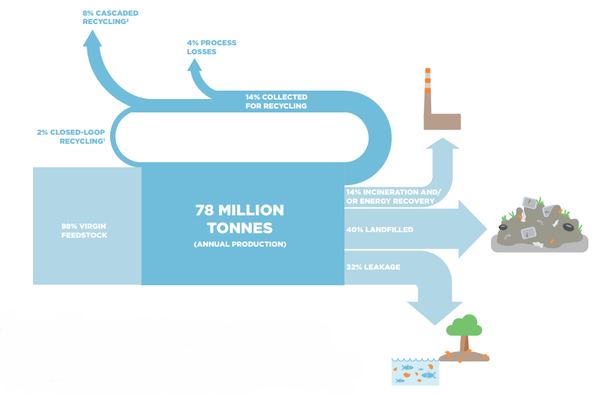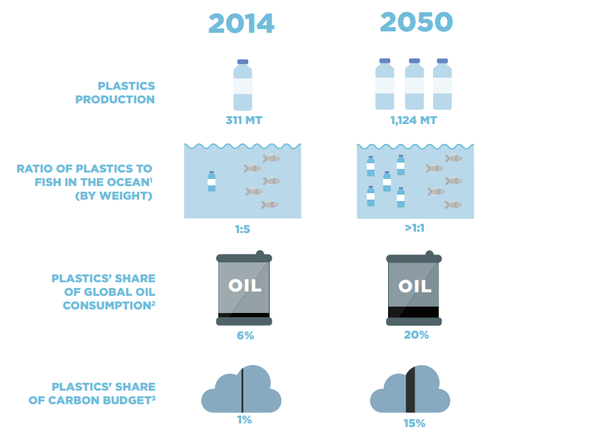We know that the oceans are warming and becoming increasingly acidic as we continue to pump more and more CO2 into the atmosphere. But they also face another threat from mankind: plastic. Our modern lives are dominated by this ubiquitous material, from the packaging on the food we eat to the technology we use every day, there is no getting away from it. Our oceans are no exception, and if current trends continue, a new report has revealed that by 2050, plastic rubbish in the ocean will outweigh fish.
According to the new report by the Ellen MacArthur Foundation, launched at the World Economic Forum in Davos this week, an astonishing 95 percent of plastic packaging is lost to the economy every year after single use, costing an estimated $80-120 billion (£56-84 billion). While only a paltry 5 percent is recycled effectively, around 40 percent is buried in landfill, and a third of all plastic produced each year finds its way into the world's oceans. This is equivalent to dumping the contents of one garbage truck a minute into the marine environment.
Since 1964, plastic production has increased by a factor of 20, and currently stands at around 311 million tonnes (343 million tons) of the stuff a year. This figure is expected to double again within the next 20 years, and quadruple by 2050, as developing nations consume more plastic. The rubbish that currently finds its way into the oceans already has harmful impacts on the wildlife. From plastics found in the stomachs of seabirds, to the plastic bags eaten by turtles and seals, or the microplastic that we can't even see being ingested by fish that we then consume.
But it is not just about the amount of plastic that ends up in the oceans, it is also about the fossil fuels that are needed to create the stuff. Currently, the production of plastics uses around six percent of the global consumption of oil - by 2050 this could rise to 20 percent. The report calls for a complete rethink of the way we manufacture plastics, and then how we deal with the mountains of waste it produces.
"This report demonstrates the importance of triggering a revolution in the plastics industrial ecosystem and is a first step to showing how to transform the way plastics move through our economy," explains Dominic Waughray of the World Economic Forum, the hosts of the annual talks in Davos, who jointly released the report along with the Ellen MacArthur Foundation. "To move from insight to large-scale action, it is clear that no one actor can work on this alone. The public, private sector, and civil society all need to mobilize to capture the opportunity of the new circular plastics economy."
The solutions are not easy. The fact that the price of oil is now so low means that recycling old plastics is now vastly more expensive than producing new ones, and with the economies in the developing world growing bigger, so is the market for plastic. Part of the solution is to rethink how we use plastics, reducing their use in packaging for example, and reusing as much of it as we can. Manufacturers could aid in this by producing plastic items that can be reused, while also shifting to plastics that could be composted. Either way, any solution will take a major shift in the way all of us consume the ever-present product.

















